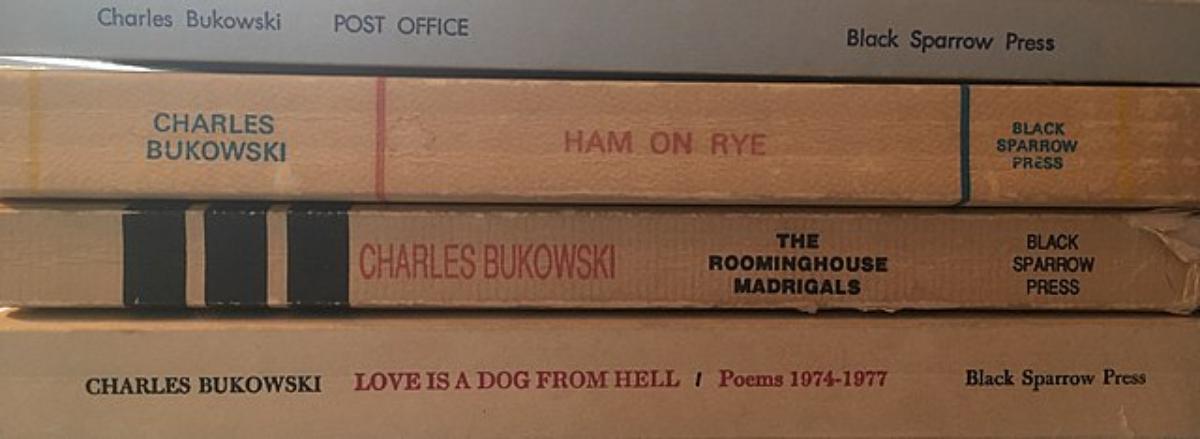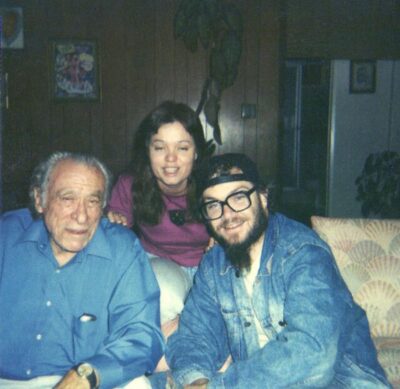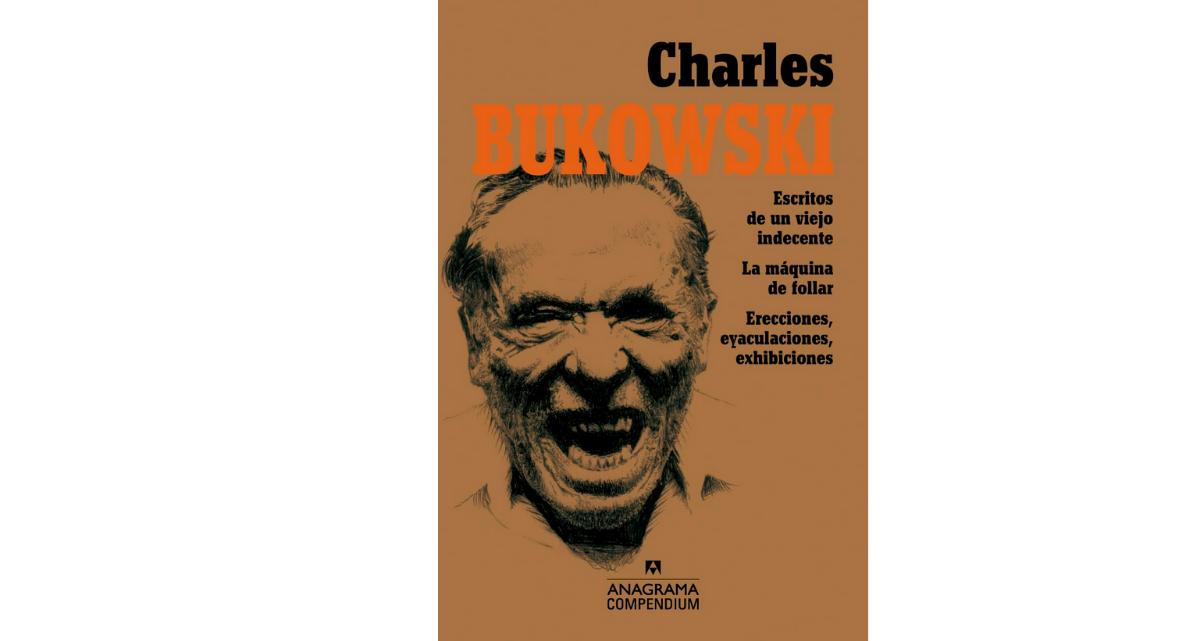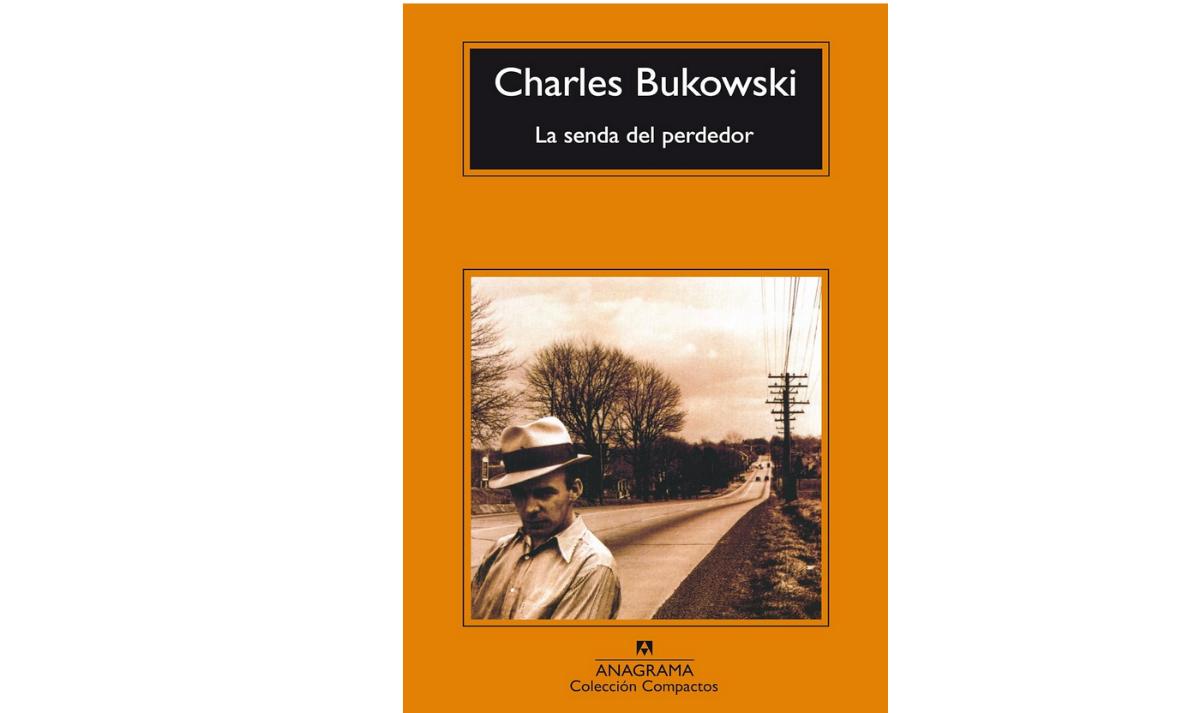
Charles Bukowski is one of the most famous writers. Throughout his career he wrote quite a few works. But, of them, there are some works by Charles Bukowski that attract attention. If you have never read this author, you will like this list of his best books.
Take a look at the selection we have chosen so that you have options to choose from and thus get to know this author if you have never read anything by him. Shall we start?
Cats
«A stark and entertaining vision of the relationship between humans and cats by one of our most transgressive writers. There is no doubt that felines strike a chord with Charles Bukowski. He admires those inscrutable and majestic creatures, whose gaze reaches his soul. For Bukowski, cats are true forces of nature, elusive emissaries of beauty and love. In Cats, Bukowski reflects on the resilience and resilience of cats. They are born fighters, hunters and survivors that inspire admiration and respect: Cats do not take anything into account, they are a clear example that when the elements of nature come into play there is nothing to do. Cats is a mordant and moving compendium of poems and prose. The cats Bukowski describes are fierce and merciless; He watches them as they stalk their prey, crawl through his manuscripts, or wake him up with their claws, but they are also affectionate and an inexhaustible source of inspiration. Cats is an emotional collection, never syrupy, in which Bukowski offers his particular vision of the animals that he considers to be his true masters.
This is one of the works of Charles Bukowski that can to please cat lovers more, although you have to take it with a grain of salt because not everyone will really agree with the author's vision of them.
Factotum
«In this autobiographical novel of his younger years, the author describes the life of his alter ego Henry Chinaski, jumping from one job to another, all sordid, hard, meaningless, getting drunk to death, with the obsession of fucking, trying to materialize his life as a writer and offers us a brutally funny and melancholy horrified vision of the work ethic, of how it bends the "soul" of men.
In fact, This character, Henry Chinaski, uses it in several of his books, especially narrating different stages of his real life, but always from the point of view of that alter ego that he created himself.

Postman
«In «Postman» he describes the twelve years in which he was employed in a squalid post office in Los Angeles. The book ends when Chinaski/Bukowski abandons the miserable security of his job, at age 49, to dedicate himself exclusively to writing.
The illness of writing
«Bukowski reflects on writing and on his literary teachers and life experiences. Abel Debritto, a scholar of the writer, has traced his unpublished correspondence and has selected the letters in which he addresses the topic of his craft and his art.
There are magazine editors, their editor, John Martin, writers like Henry Miller, Lawrence Ferlinghetti or Hilda Doolittle, critics and friends. In them he reflects sharply on the writing process and allows us to delve into the bowels of the publishing business. Reading them presents a stimulating autobiographical journey that reveals a nuanced Bukowski, beyond the archetype; to an author obsessively devoted to writing, with a solid background of readings and a very clear vision of his approach, which leads him to complain about some editorial attempts to tame his harsh and direct style.
The book, which began in 1945 and closed in 1993, a few months before his death, is a juicy compendium of Bukowskian aesthetics, with his characteristic vehemence and take no prisoners attitude: he launches fierce barbs against the beats (Ginsberg and Burroughs), the poets of Black Mountain College, Hemingway or Shakespeare himself, but he also expresses his admiration for Dostoevsky, Hamsun, Céline, Fante or Sherwood Anderson.
Can be A good book for those who want to dedicate themselves to writing. Of course, always keeping in mind that we are talking about an author considered “cursed.”
open all night
«These poems written between 1980 and 1994 address the themes that made Bukowski such a revered and imitated writer: nostalgia for old loves gone bad, brawls in seedy bars, alcohol as fuel and condemnation, the euphoria of writing when one is on a roll, the strange beauty of society's outcasts, illness and deterioration, all endowed with a more intense viscerality as the poet senses the proximity of his own disappearance.

Love is a dog from hell
«Love is a dog from hell constitutes a dense anthology that covers three years of work (1974-1977) of a Bukowski already in full maturity, the one that the amateur knows and the neophyte expects, brutally sincere, allergic to sweetened landscapes, dedicated without concessions to what matters and feels to him, women, his writing, gambling and drunkenness, his world of losers in the city of Los Angeles. Often acidic, and almost always cynical, not everything is dirty realism or individualistic provocation in his verses; There is also an existential look that reveals the everyday absurdity, the human condition, the soul of the poet.
In this case, and always reading between the lines, It is one of Charles Bukoski's works in which you can really see what the author thinks about these topics (and what society makes us believe about them).
pipe music
«Pipe music: the catarrhal music of hot water making its way through the radiators of miserable Los Angeles hotels: a good soundtrack for Bukowski's stories in this new book. «Ernest Hemingway and Henry Miller are alive and screwed and living in a rented room in East Hollywood – so one might think after reading this book. Sordid, obscene and violent, Bukowski's Los Angeles is more like Miller's Paris than Hemingway's, but our guide through this underworld is closer to Hemingway's laconic stoicism than Miller's apocalyptic rhapsodies. Lives of quiet desperation explode in seemingly random and unmotivated acts of violence. In each story appear homicidal impulses born of frustrations for which there is no possible cure" (Los Angeles Times)".
Again you will find a book in which Bukowski tells, in his opinion, what his life has been like. With that acid touch and a very characteristic pen, it makes us focus on those parts that sometimes go unnoticed or that we see but don't say out loud.
Care
«In Love, Bukowski grapples with the complications and joys of love, lust, and desire. In a tone that ranges from the harsh to the delicate, from the sensitive to the hurtful, Bukowski reveals the many faces of love: its selfishness and narcissism, its random nature, its mystery and sadness and, ultimately, its joy. absolute, resistance and redemptive power.
The bells don't toll for anyone
"Hank helps an old alcoholic friend get out of a hospital; The employee of a sex shop tells bizarre anecdotes starring some clients, such as the one who, due to his respiratory problems, asks for his wrist to be inflated; A lonely masturbator dreams of the woman of his life appearing; a guy is kidnapped by three women; "A girl goes to a job interview in which she is asked questions about extreme sexual practices... This volume brings together stories by Bukowski that appeared in newspapers and magazines, such as the pornographic Hustler and Oui."
This is one of Charles Bukowski's works that perhaps has fewer readers, especially because of the erotic or pornographic connotation that it has. However, it also reveals certain opinions and characteristics of a society.

Erections, ejaculations, exhibitions
«The stories gathered here seem to have been extracted from the ulcerous guts of their narrator, written between attacks of delirium tremens, orgies and alcoholic fantasies, using the crude language of the street, of the scum, of the garbage, like no one else had done before. Brutally funny chronicles of the Yankee nightmare, of the "neon desert", so free of hypocrisy, so authentic, that they make you shudder.
Hollywood
«Henry Chinaski has always been on the warpath, without lowering his guard against the «establishment» and its infinite tentacles. But in Hollywood it will not be easy for him: John Pinchot, a crazed film director, is determined to bring to the screen the stories of his youth, that is, the autobiography of a hopeless alcoholic. Chinaski is wary of the project, although he reluctantly agrees to write the film's script. And here the real problems begin.
Writings of an indecent old man
"With his brutality, his wild and tender sense of humor, his tremendous sincerity, drunk, crazed Bukowski, trapped in a society whose alleged values disgust him, manages, with his stark and concise style, to immediately connect with the reader."
In reality, what you are going to find is a series of stories by the author where he tries to present a vision of society that many see but do not want to think about (or do not want to be exposed to that reality).
Nightingale wish me luck
«This book over which the spirit of the nightingale – the laughing bird par excellence – hovers is, like all the titles by Charles Bukowski (1920-1994), witty and funny, lucid and brave, but also intensely melancholic. The thematic unity in this author's works is rarely so clear: melancholy permeates this volume more than any other feeling, to the point of becoming a way of seeing life, of understanding it as condemnation or illness. But it is in the fight against this suffering where Bukowski shines most intensely, aspiring with his poems to his own salvation and also to that of those who read them.
Fragments of a wine-stained notebook
«Upon his death in 1994, Charles Bukowski left fifty books in his wake, but also abundant archives of unpublished material or material published only in underground magazines and newspapers of various kinds. Thirty-six pieces are brought together here, which, according to John Martin, his editor since the XNUMXs, constitute "the missing link in Bukowski's work that suddenly makes everything make sense."
Really We cannot say that this book was written by Bukowski, in the sense that the works that are part of this have been selected by their editor, not really by the author. But you can see that, until his death, his pen remained the same by which he had been known.
Son of satan
«Bukowski deploys his best arts as a ruthless storyteller to offer twenty sarcastic, explosive and absolutely unforgettable stories. Nobody comes out unscathed: not the boxer who is recommended to throw himself between rounds, not the writer who goes to the racetrack looking for an "action" that ruins him, not the bored young man who brings a prostitute to his house, not the actor who tries to escape from the tyranny of fame... Nor, of course, is the reader.
Have you read any of the works of Charles Bukowski? Which of them did you like the most or which impacted you? We read you in comments.